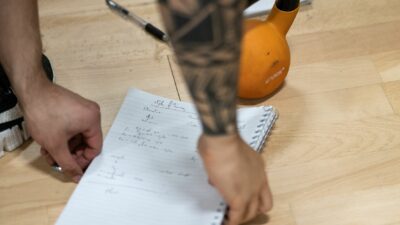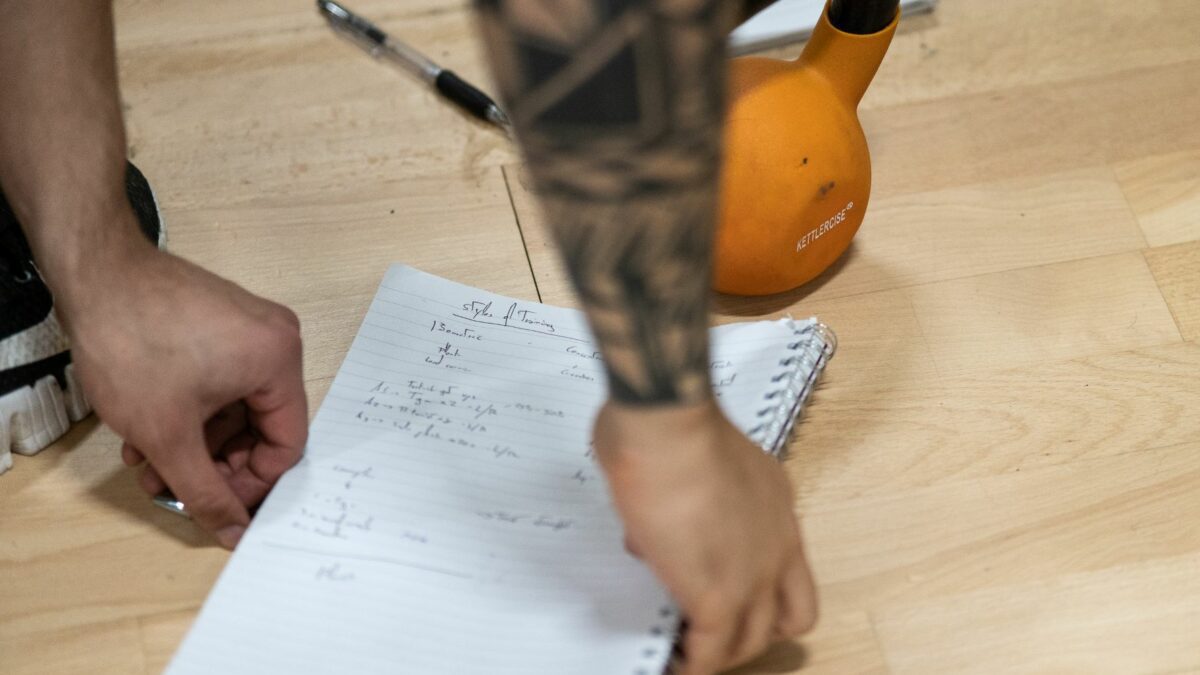



Personal trainers work for gyms, fitness centres, individuals or corporate clients.
A professional personal trainer’s CV should give an incredible first impression to your prospective employer. The CV should aim to be concise and straight to the point, whilst highlighting your personal and professional skills and experience.
In an industry where qualifications are accredited by, CIMSPA and others, you should make sure that any personal training qualification you do prior to starting is an accredited training course.
If you are applying as a senior Personal Trainer with more established contacts and personal branding, we would strongly advise you to also show how you are different from others.
Some examples of ways to do this are using a personal trainer website, Linkedin profile, membership to professional bodies and high use of social media platforms with follower growth.
Before we go into some helpful personal trainer CV advice and recommendations, we have highlighted some common mistakes to be aware of.
To help you we have put together some of the main points to consider when writing your CV. This is probably one of the most important documents you’ll ever write and it needs to create a long-lasting impact to ensure you get the interview. Remember that you may only have 20-30 seconds to grab the reader’s attention, so consider carefully what information you want to put down. To kickstart your personal trainer career opportunities below are some things to think about when writing your CV.
The first part of your CV should include your personal information, positioned at the top of the page. To make the hiring process smooth you should include the following details:
Top Tip: Save space on your CV by avoiding any unnecessary information such as marital status, date of birth or your full home address (only list town and country).
A personal profile is one of the most important aspects of your CV and is a chance for you to blow your own trumpet.
Invest some time to answer these questions by writing a couple of sentences that really ‘sell’ yourself. The first two opening sentences are crucial so you need to highlight any specific qualities that will demonstrate how you meet the requirements of the role.
Top tip: When highlighting skills, aim to include examples from past employment to justify your claims. This shows how you have applied these skills in your own work experience.
Your employment history outlines previous jobs, internships and work experience. Ideally, you should begin with the most recent. When listing each position of employment, including the dates, job title and address along with a short summary of your duties. Use bullet points to show any significant achievements or skills you acquire during the role. It helps to choose the duties most relevant to the job you’re applying for.
Top tip: Where you have limited work experience, other experience outside of paid employment could show your capabilities. This might include unpaid work placements, or community activities, such as working with a charity.
Similar to your experience section, your education and fitness-related qualifications should be listed with the most recent. This is exactly the same logic as your education section, remain concise, include the most relevant information, and make sure the employer knows you are adequately qualified. If you have recently left education, you can write it like so:
Institution name – Dates attend (from-to)
You can then lay your qualification out as follows
Qualification, Grade
Top Tip: Keep your qualifications relevant. You may be proud of your ‘Cycling Proficiency Certification’, but it has no place on a CV!
While your CV tells the story of your career, the additional information section can reveal a little more about your personality. Achievements, skills, hobbies and interests all play a vital role in showing personal development and reflecting on your commitment to maintaining extracurricular pursuits that you are passionate about.
Top tip: It is important to focus on relevant hobbies and interests such as fitness since you’re writing a personal training CV. Including health related achievements or personal fitness goals will help show drive and determination which are valued skills in the fitness industry.
Similar to your address, adding references is no longer standardised. Therefore, you can include a line at the end of your CV that reads ‘reference upon request’.
Top tip: Potential employers contact your references and ask questions about your skills, duties and/productivity. Choosing the right referee is therefore important. It is always a good idea to select a reference who is thoroughly familiar with your previous experiences and job description and how these skills will speak positively about your work ethic.
Remember, your CV is your ticket to getting that interview. For more information visit www.bradleycvs.co.uk
“Identify any Transferable Skills and Experience – For example, customer service, administration, organisation, marketing, sales skills, and business management are all beneficial within a personal training environment.”